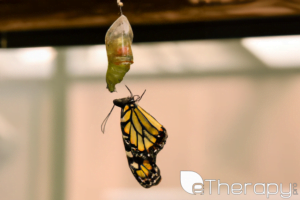 In an era marked by rapid changes and constant learning, our mindset holds a pivotal role in determining our success. While talent is innate, the way we perceive challenges and opportunities plays a vital role in harnessing that talent. Enter the growth mindset – an empowering belief that one’s abilities aren’t fixed but can be developed over time. But how transformative can this mindset truly be?
In an era marked by rapid changes and constant learning, our mindset holds a pivotal role in determining our success. While talent is innate, the way we perceive challenges and opportunities plays a vital role in harnessing that talent. Enter the growth mindset – an empowering belief that one’s abilities aren’t fixed but can be developed over time. But how transformative can this mindset truly be?
What is Mindset?
Our mindset is a complex interplay of beliefs, attitudes, and perceptions that shapes our reactions to experiences, challenges, and opportunities. It’s the internal compass guiding our behaviors, choices, and overall outlook on life.
The Framework of Thought
Every action we take, decision we make, and interaction we have is influenced by our mindset. It’s the lens through which we perceive the world around us, our place within it, and our potential to change and grow within that environment.
Origins of Mindset: Nature vs. Nurture
The age-old debate of nature versus nurture isn’t just about genetics versus upbringing; it’s about the foundational elements that shape our mindset. While our genes may give us certain predispositions, our experiences, the environments we immerse ourselves in, and the choices we make mold our thinking patterns and beliefs.
- Nature: Our innate tendencies or predispositions that come from our genetic makeup.
- Nurture: The environment and experiences that influence and shape our thinking, from early childhood lessons to the mentors we encounter in adulthood.
The Evolution of Mindset Over Time
Our mindset isn’t static; it evolves, matures, and changes. As we traverse different phases of life, from the innocence of childhood to the complexities of adulthood, our mindset adapts. Influenced by societal norms, the pressures we face from peers, our personal successes, and the lessons we learn from failures, our mindset is a dynamic part of our persona.
Fixed vs. Growth Mindset
Understanding the nuances between the fixed and growth mindsets is crucial in recognizing our own patterns of thinking.
- Fixed Mindset: Rooted in the belief that our abilities and intelligence are static, this mindset can inhibit growth and deter us from facing challenges.
- Growth Mindset: Fueled by the conviction that abilities can be honed and developed with effort and persistence, this mindset propels us towards embracing challenges and viewing failures as learning opportunities.
The Underlying Psychology
Beneath the surface of our conscious thought lies a complex interplay of neural pathways and cognitive biases. These ingrained patterns dictate how we respond to challenges, perceive our abilities, and even how we view the successes and failures of others. By delving into the psychology of our mindset, we can uncover these biases and take proactive steps to nurture a growth-oriented outlook. Recognizing these inherent biases, challenging them, and reshaping them are fundamental to the journey from a fixed to a growth mindset.
The Power and Potential of a Growth Mindset
The growth mindset isn’t just a feel-good mantra; it’s a transformational approach that has the power to unlock previously unseen potential. By believing in our capacity to grow, we set the stage for boundless achievements, redefine our boundaries, and shift the paradigms of what we believe is possible.
Breaking Boundaries
A growth mindset fosters resilience and a love for learning, turning challenges into opportunities rather than obstacles. This empowering mindset allows individuals to push past self-imposed limits, setting the stage for personal and professional breakthroughs.
Resilience: The Heartbeat of Growth
Resilience, often seen as the ability to bounce back from setbacks, is intricately tied to the growth mindset. A resilient individual doesn’t just overcome challenges; they leverage them as learning experiences, growing stronger with every hurdle they overcome.
Unleashing Creativity and Innovation
With a growth mindset, we’re more open to novel ideas and unconventional solutions. It fuels creativity, making us more receptive to exploring uncharted territories, questioning norms, and thinking outside the box.
Most of the important things in the world have been accomplished by people who have kept on trying when there seemed to be no hope at all. – Dale Carnegie
From Fixed to Growth: Transformational Stories
Throughout history, numerous individuals have shattered the ceilings of perceived potential by embracing a growth mindset. Their stories serve as powerful testaments to the transformative power of this mindset.
Celebrated Failures: Thomas Edison
Edison’s journey to invent the light bulb was fraught with failures. Yet, his belief that each failure brought him closer to success epitomizes the growth mindset. He once remarked, “I have not failed. I’ve just found 10,000 ways that won’t work.”
Growth Mindset in Real-Life Scenarios
A growth mindset isn’t merely a theoretical construct; it manifests tangibly in various spheres of life. Let’s explore how this transformative mindset shapes our experiences and outcomes in education and the professional world.
In Education
Adopting a growth mindset in academic settings doesn’t merely revolve around grades. It’s about fostering a genuine love for learning, resilience in the face of challenges, and the understanding that effort can significantly enhance ability.
The Classroom Impact: Changing the Learning Dynamics
In a classroom that champions a growth mindset:
- Curiosity Reigns: Students ask questions not for grades but to quench their thirst for knowledge.
- Feedback is Welcomed: Rather than fearing criticism, students see feedback as an avenue for growth.
- Collaboration Over Competition: Pupils learn the power of collective growth, emphasizing teamwork over individual accolades.
In Professional Settings
The corporate world is increasingly valuing adaptability, resilience, and the ability to learn and relearn. Employees who embrace a growth mindset don’t just excel in their roles; they redefine them.
Success Stories: Companies Embracing Growth
Several leading companies actively promote a growth mindset culture:
- Microsoft: Under Satya Nadella’s leadership, Microsoft’s mantra shifted to “learn it all” from “know it all.” The emphasis? Continual learning and adaptation.
- Airbnb: In its early days, when faced with dwindling finances, instead of giving up, the founders pivoted by selling unique cereal boxes, showcasing adaptability and a growth mindset.
- SpaceX: Despite multiple rocket failures, Elon Musk’s unwavering belief in the potential to grow and adapt led to space exploration innovations.
Cultivating Your Growth Mindset
Harnessing a growth mindset isn’t an overnight transformation. It demands introspection, the right influences, and a consistent commitment to pushing your boundaries. Let’s delve into the strategies that can assist you in this transformative journey.
Acknowledging and Challenging Your Beliefs
Every individual carries a set of beliefs, often shaped by past experiences and societal norms. Recognizing and challenging these beliefs is the first step to cultivating a growth mindset.
Self-Reflection Exercises:
Utilize journaling as a tool to pen down your thoughts after specific events. Over time, patterns emerge, helping you identify beliefs that might be limiting your potential. For instance, after a setback, did you tend to attribute it to a lack of ability or to external factors? Such insights guide your path to a growth mindset.
Surround Yourself with Growth Mindset Advocates
It’s often said that you’re the average of the five people you spend the most time with. If that’s the case, wouldn’t you want those five to be the epitome of growth and progression?
Evaluating Your Circle:
Draw two columns on a paper; on one side, list individuals who inspire and challenge you, and on the other, those who might be fostering a fixed mindset. Consider re-balancing your time and energy towards the growth-inspiring individuals.
Continuous Learning and Adaptability
In a rapidly changing world, adaptability is more of a survival skill than a mere trait. Embrace new experiences, seek feedback, and invest in self-improvement.
Building a Habit:
Start with dedicating 15 minutes daily to learning something new, be it through reading, online courses, or even a new hobby. This not only enhances your skill set but also ingrains a growth mindset.
In a growth mindset, challenges are exciting rather than threatening. So rather than thinking, oh, I’m going to reveal my weaknesses, you say, wow, here’s a chance to grow. – Carol S. Dweck
Overcoming the Barriers to a Growth Mindset
While the growth mindset presents numerous benefits, fully embracing it can be a challenge due to deeply rooted beliefs and fears. Here’s a guide to overcoming these barriers and truly unleashing your potential.
The Trap of Complacency
Staying in one’s comfort zone might offer temporary solace, but it’s a fertile ground for stagnation. Breaking free requires conscious effort and determination.
Actionable Strategies to Push Boundaries:
- Engage in New Experiences: Opt for activities outside your usual interests. If you always read fiction, dive into a science journal. It’s not about mastery but about exploration.
- Set Micro-goals: Instead of monumental tasks that can be overwhelming, set smaller, achievable challenges for yourself daily. Over time, these accumulate into significant growth.
Overpowering the Fear of Failure
Fear of failure can be paralyzing. Yet, every setback offers valuable lessons that propel us closer to success if we’re willing to see them.
Embracing the Lessons:
Visualize a recent situation where you felt you “failed.” Now, instead of focusing on the negative emotions, list down three things you learned from that experience. This simple reflection shifts your perspective from dwelling on the setback to valuing the lessons.
Positive Affirmations:
Create a set of affirmations that resonate with you, such as “Every failure is a step closer to success” or “I grow stronger with every challenge.” Repeat these daily, especially during moments of doubt, to instill a more resilient mindset.
Conclusion:
The landscape of success is dotted with tales of individuals who broke barriers, not because of inherent genius but due to a relentless belief in their capacity to grow. A growth mindset isn’t just about believing in change; it’s about committing to the journey of self-betterment. In the words of Robert H. Schuller, “Problems are not stop signs, they are guidelines.” Adopting this mindset can truly revolutionize potential, turning aspirations into achievements. So, where do you stand, and where do you wish to go?









